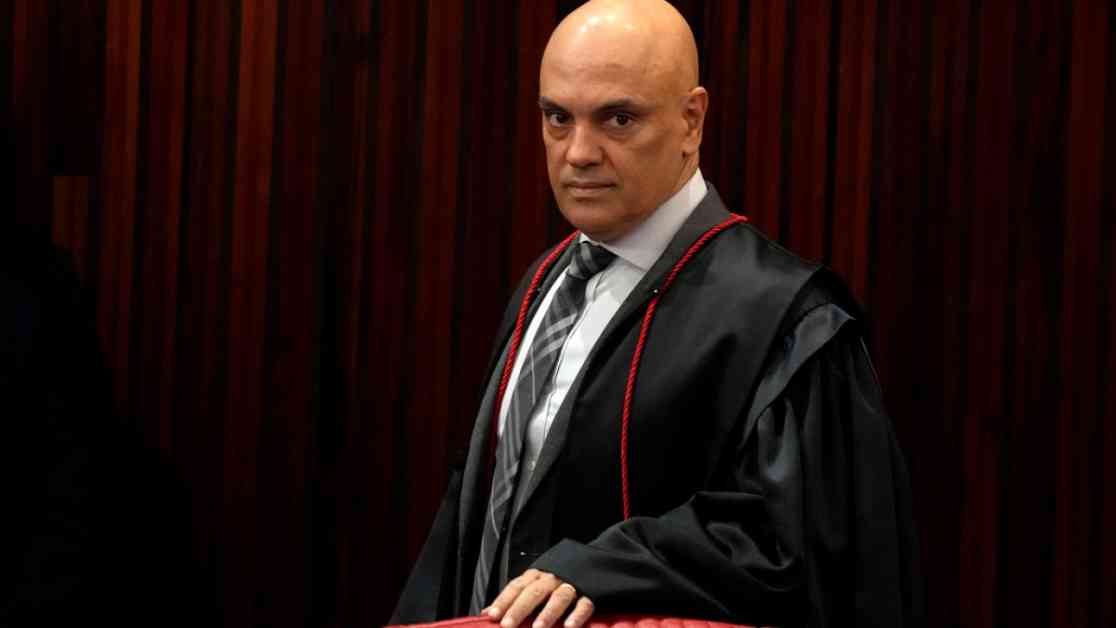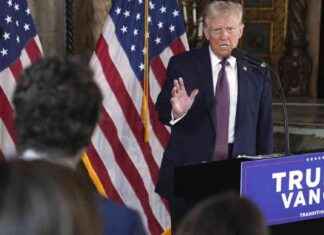Billionaire Elon Musk has criticized the ban imposed on his social media company, X, in Brazil, where the platform failed to comply with court orders. The Brazilian Supreme Court Justice Alexandre de Moraes recently made headlines by unfreezing the bank accounts of X and another one of Musk’s ventures, Starlink, after a substantial transfer of over $3 million in fines.
According to a statement released by the country’s highest court, the Brazilian government successfully retrieved approximately 7.2 million Brazilian reais ($1.3 million) from an X bank account and nearly 11 million Brazilian reais ($1.9 million) from a Starlink account in order to settle the fines. Once the full amount owed was paid, Justice de Moraes deemed it unnecessary to continue keeping the bank accounts frozen and promptly ordered their unfreezing.
The decision to freeze the accounts came after X, owned by Musk, failed to comply with court orders to remove accounts accused of spreading misinformation and also neglected to appoint a legal representative in Brazil as required by law. Musk, who also owns Starlink, faced repercussions due to X’s actions, leading to the freezing of both companies’ bank accounts despite their separate operations.
In response to the ban on X, Musk publicly denounced Justice de Moraes, labeling him an “evil dictator.” This vocal criticism from the South African billionaire is not uncommon, as he has a history of promoting far-right conspiracy theories and false claims, particularly regarding election fraud. Musk has also expressed solidarity with supporters of Brazil’s former right-wing leader, Jair Bolsonaro, who propagated unfounded allegations about the country’s October 2022 election, which Bolsonaro lost.
The aftermath of the contentious election led Bolsonaro’s followers to call for a military coup to overturn his defeat, culminating in an attack on the country’s legislature on January 8, 2023. Subsequently, Bolsonaro was barred from holding office until 2030, further intensifying the conflict between him, Musk, and Justice de Moraes over ongoing investigations into their respective actions.
Despite Musk’s vocal opposition to governments cracking down on false information on social media platforms like X, he has displayed a willingness to comply with such requests from right-wing administrations. For instance, in 2023, X (previously Twitter) acceded to a demand from India’s Hindu nationalist Prime Minister Narendra Modi to block access to a BBC documentary exploring his involvement in a violent anti-Muslim incident in 2002. Musk defended the decision, citing the necessity of adhering to the laws of the country to avoid legal repercussions for the platform.
The complexities of dealing with content moderation on social media platforms in diverse geopolitical contexts underscore the challenges faced by tech companies like X and Starlink. As Musk navigates these intricate legal and political landscapes, his responses to government requests for content removal and compliance with local regulations continue to draw scrutiny and debate.
Implications of the Unfreezing of Bank Accounts
The recent unfreezing of X and Starlink’s bank accounts in Brazil has significant implications for both companies and their operations in the country. With the settlement of the fines owed to the Brazilian government, X and Starlink can resume their financial activities and potentially mitigate any further disruptions to their services. This development also signals a potential easing of tensions between Musk, the Brazilian government, and Justice de Moraes, paving the way for a more constructive dialogue moving forward.
Furthermore, the decision to unfreeze the bank accounts underscores the importance of regulatory compliance and adherence to court orders for multinational corporations operating in foreign jurisdictions. Musk’s public sparring with Brazilian authorities over X’s ban and subsequent financial penalties highlights the challenges faced by tech giants in navigating legal frameworks and regulations in different countries. As the global tech landscape continues to evolve, the need for transparency, accountability, and cooperation between governments and tech companies becomes increasingly paramount.
The Role of Social Media in Politics
The controversy surrounding X’s ban in Brazil and the subsequent actions taken by Musk shed light on the role of social media platforms in shaping political discourse and influencing public opinion. The spread of misinformation, hate speech, and extremist content on social media has raised concerns about the platform’s impact on democratic processes and societal cohesion. As tech companies grapple with these complex challenges, questions arise about the balance between freedom of speech and the need to combat harmful content online.
In the case of X and Starlink, the unfreezing of bank accounts following a high-profile legal dispute underscores the power dynamics at play between tech companies, governments, and the judiciary. The influence wielded by billionaire entrepreneurs like Musk in shaping public narratives and political outcomes further complicates the regulatory landscape for social media platforms operating on a global scale. As debates continue over the regulation of online content and the responsibilities of tech companies, the case of X in Brazil serves as a poignant example of the intricate interplay between technology, politics, and power.
As Musk navigates the fallout from the ban on X and the subsequent legal battles in Brazil, the implications for his businesses and personal reputation remain uncertain. The ongoing scrutiny of his actions and statements highlights the challenges faced by tech moguls in balancing their entrepreneurial pursuits with social and political responsibilities. The outcome of the unfreezing of X and Starlink’s bank accounts may offer insights into the future trajectory of tech regulation, content moderation, and corporate accountability in an increasingly interconnected world.



























